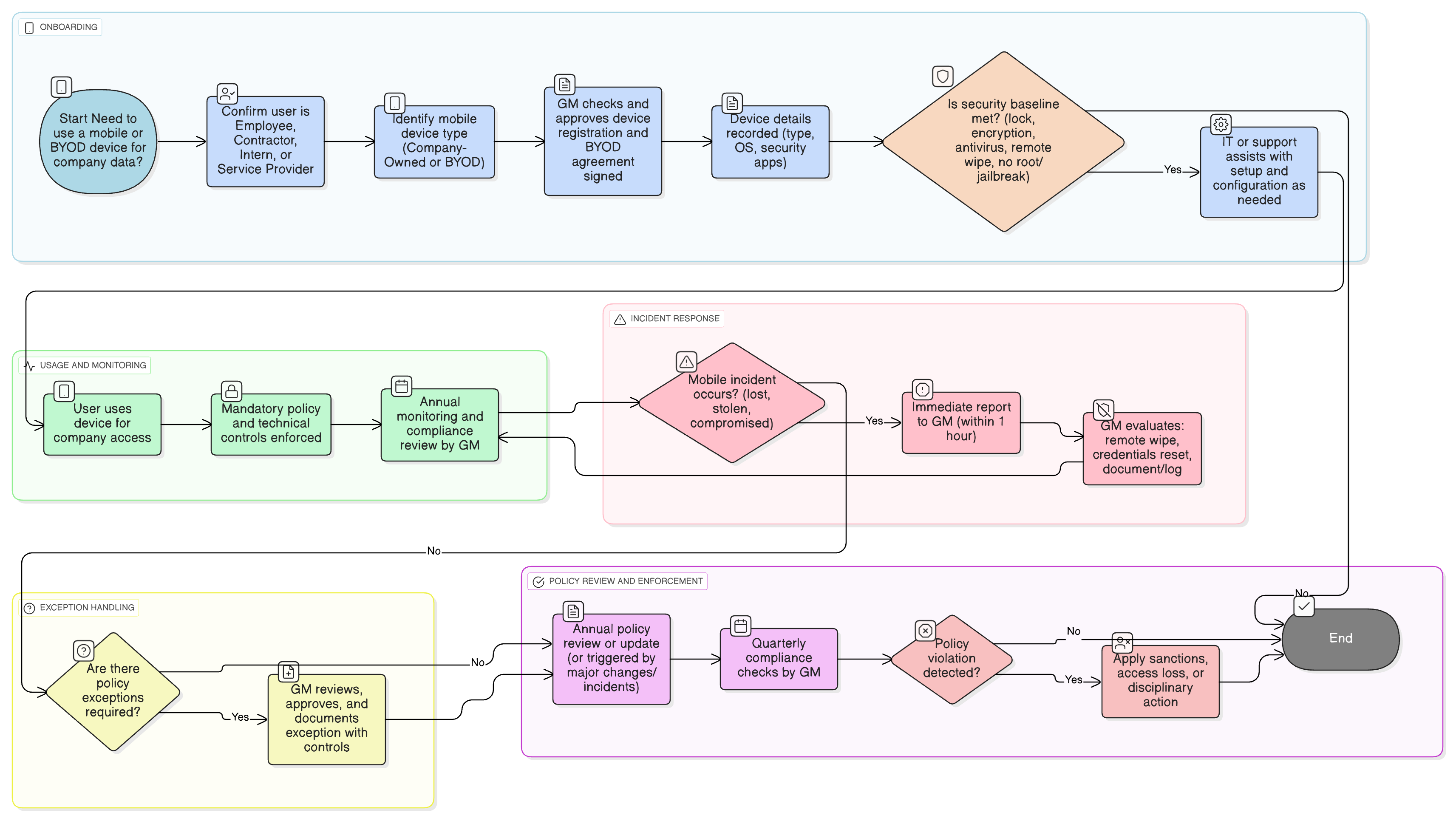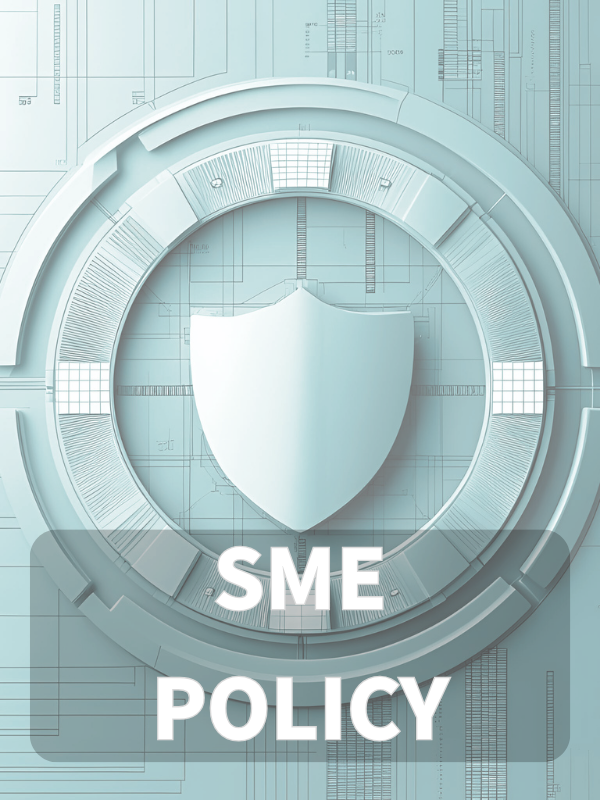Overview
This Mobile Device and BYOD Policy for SMEs (P34S) sets out mandatory security controls and governance for mobile and personal devices accessing company data, with a strong focus on enforceability, privacy, and compliance for organizations without dedicated IT teams.
Unified Mobile Security
Applies robust security controls to company and personal devices, protecting sensitive data across locations.
BYOD Governance
Sets clear rules and approval workflows for using personal devices, safeguarding privacy and compliance.
SME-Friendly Simplicity
Designed for SMEs without dedicated IT teams, accessible and actionable roles, with a General Manager overseeing enforcement.
Read Full Overview
Policy Diagram

Click diagram to view full size
What's Inside
Scope and Rules of Engagement
Device Registration and Baseline Security Controls
BYOD Privacy and Authorization
Incident Reporting and Mobile Response
Public/Remote Work Technical Safeguards
Annual and Trigger-Based Policy Review
Framework Compliance
🛡️ Supported Standards & Frameworks
This product is aligned with the following compliance frameworks, with detailed clause and control mappings.
Related Policies
Access Control Policy-SME
Defines requirements for managing secure access to systems, including those accessed via mobile devices.
Information Security Awareness And Training Policy-SME
Ensures users are trained on secure mobile device use, incident reporting, and BYOD conditions.
Data Protection And Privacy Policy-SME
Establishes GDPR-compliant handling of personal and company data on mobile platforms, especially when personal devices are used for work.
Remote Work Policy-SME
Aligns with mobile use expectations when working offsite or from home, including device handling and network access safeguards.
Incident Response Policy-SME
Provides the response framework for mobile-related incidents, including compromised or lost devices.
About Clarysec Policies - Mobile Device and BYOD Policy - SME
Generic security policies are often built for large corporations, leaving small businesses struggling to apply complex rules and undefined roles. This policy is different. Our SME policies are designed from the ground up for practical implementation in organizations without dedicated security teams. We assign responsibilities to the roles you actually have, like the General Manager and your IT Provider, not an army of specialists you don't. Every requirement is broken down into a uniquely numbered clause (e.g., 5.2.1, 5.2.2). This turns the policy into a clear, step-by-step checklist, making it easy to implement, audit, and customize without rewriting entire sections.
Separation of Business & Personal Data
Enforces technical boundaries on BYOD so business data can be managed or wiped, never accessing personal files or apps.
Automated Compliance Auditing
Requires logging and regular reviews for device compliance, security app installation, and audit readiness.
Frequently Asked Questions
Built for Leaders, By Leaders
This policy was authored by a security leader with 25+ years of experience deploying and auditing ISMS frameworks for global enterprises. It's designed not just to be a document, but a defensible framework that stands up to auditor scrutiny.
